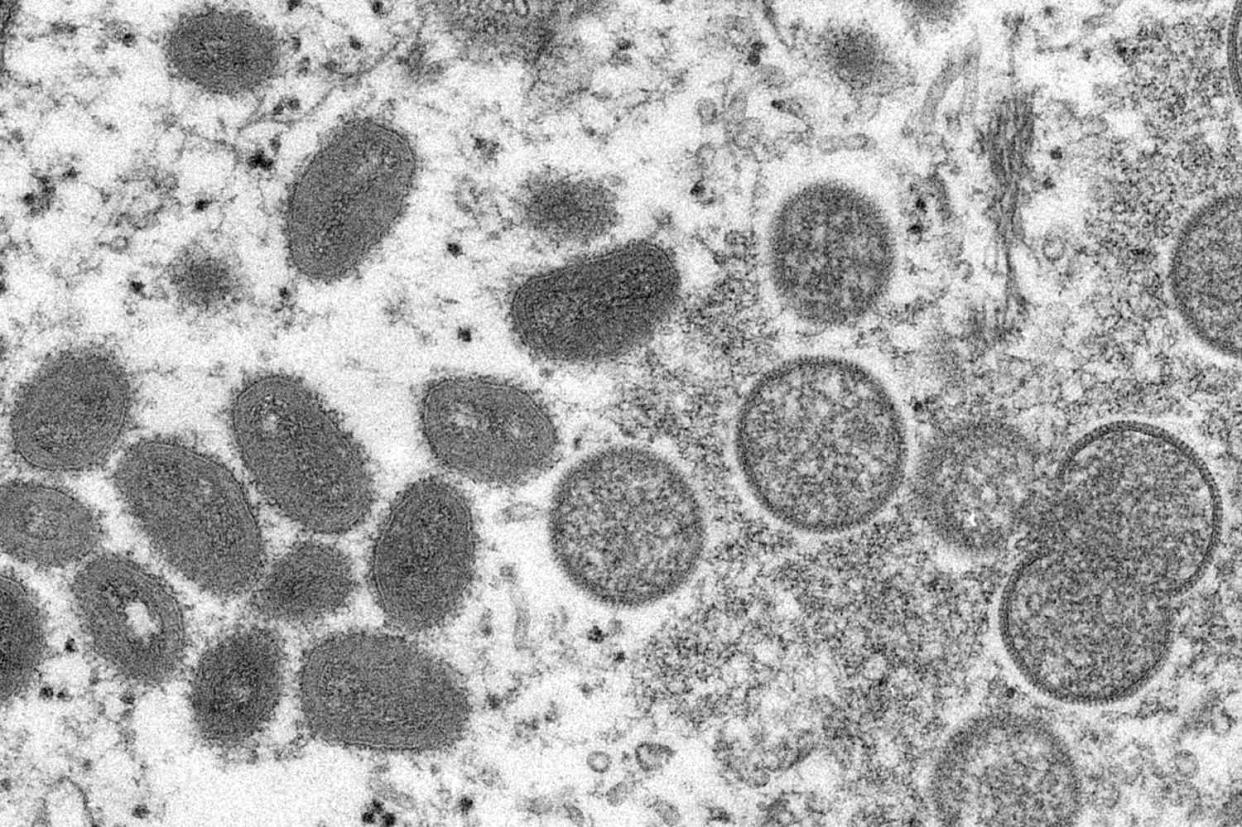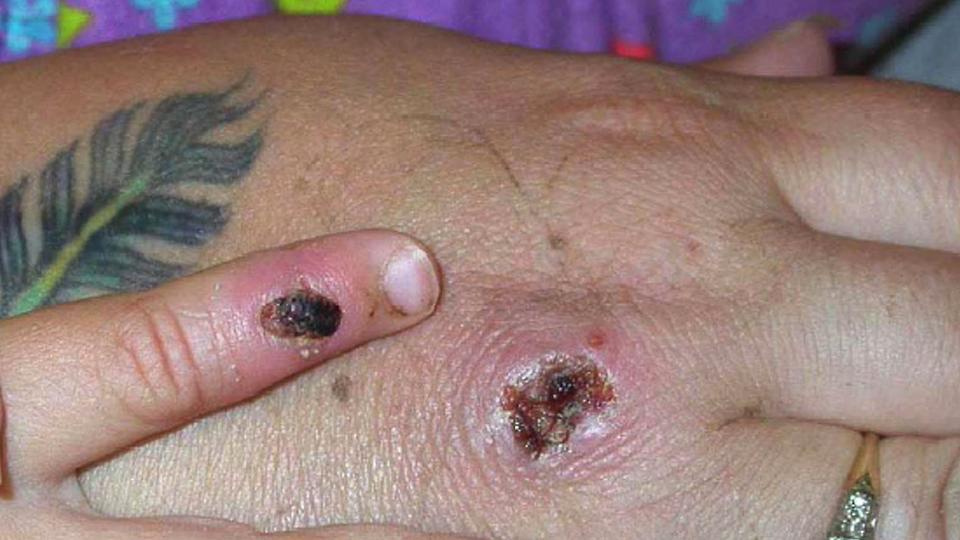CDC Confirms 10 Monkeypox Cases Across Eight States, Health Officials Expect More to Come

Cynthia S. Goldsmith, Russell Regner/CDC via AP Monkeypox virions
The U.S. Centers for Disease Control and Prevention has identified 10 cases of monkeypox across eight states as of Friday.
Health officials confirmed that cases of the rare virus have been reported in California, Colorado, Florida, Massachusetts, New York, Utah, Virginia and Washington.
"A monkeypox outbreak of this scale and scope across the world has not been seen before," Dr. Raj Panjabi, who is leading the White House's monkeypox response, said in a briefing Thursday.
"We shouldn't be surprised to see more cases reported in the US in the upcoming days," he continued. "It's actually a sign that Americans are remaining vigilant, and health care providers and public health workers are doing their job."
Never miss a story — sign up for PEOPLE's free daily newsletter to stay up-to-date on the best of what PEOPLE has to offer, from juicy celebrity news to compelling human interest stories.

Courtesy of CDC/Getty Images Monkeypox lesions
CDC Director Dr. Rochelle Walensky added during the briefing that though most cases "are within gay [and] bisexual men and other men who have sex with men," Virginia's confirmed case is a woman. She said Americans should "approach this outbreak without stigma and without discrimination."
"While some groups may have a greater chance of exposure right now, infectious diseases do not care about state or international borders," Walensky said. "They're not contained within social networks, and the risk of exposure is not limited to any one particular group."
The CDC said they are working directly with state and local officials to monitor the outbreak and treat current cases.
"The U.S. has the resources we need to help us respond to monkeypox in this country right now," Walensky assured. "We've been preparing for this type of outbreak for decades."
RELATED VIDEO: The Importance of the COVID-19 Vaccine and the Call for 'Unity'
Earlier this week, President Joe Biden said that the U.S.'s supply of the smallpox vaccine — which is effective against monkeypox, even when given after a person contracts the virus — is enough to "deal with the likelihood of the problem."
RELATED: What to Know About Monkeypox — Including How It Spreads — as the CDC Confirms a U.S. Case
Monkeypox — named because it was originally found in colonies of monkeys used for research — first causes fever, headache, muscle aches, chills and swollen lymph nodes, and after one to three days patients develop a rash that spreads over the body and turns into fluid-filled lesions.
The rare virus can spread through respiratory droplets, but is most likely to transmit from touching body fluids or the rashes.
Along with the U.S., 20 countries that do not typically see cases of monkeypox — including the United Kingdom, Canada, Spain, Portugal, Italy, Sweden, Belgium, France, Australia and Germany — have reported suspected or confirmed cases, the World Health Organization said Friday. There are now nearly 200 confirmed cases worldwide.

